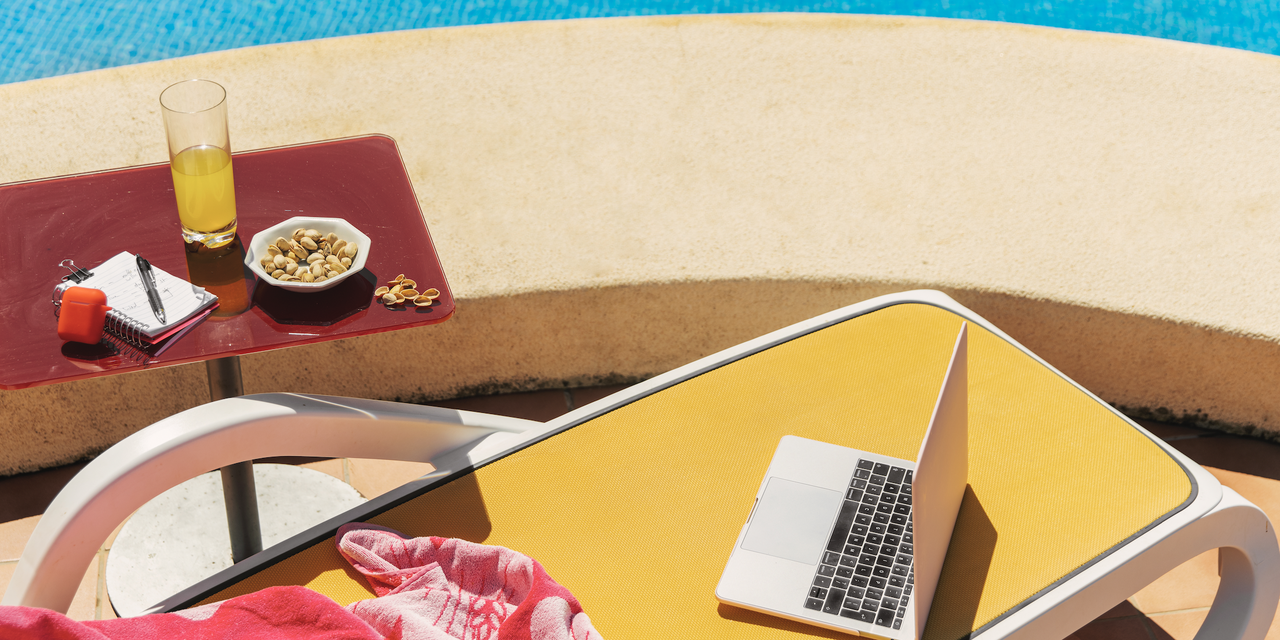Thankfully, this is pretty easy to do (even if you’re not tech-savvy), and most of your apps probably have a setting to mute push notifications. With Slack, for example, you can go into your profile, select “preferences,” and manually turn off all alerts until a set date of your choice. If you use Microsoft Teams, click “settings” to suspend any incoming DMs or calls. Gmail, too, allows you to adjust your status in “settings” to “Do Not Disturb” mode for however long you need. “Social media and communication apps are designed to be addictive so that you’re constantly clicking and checking them. That’s why it’s really important to set boundaries to make sure you’re not always being interrupted,” Dr. Ballard adds.
Temporarily delete any work-related apps, including your email.
The great thing about technology? You can access so much of your job on your portable little smartphone. The dark side? You can access so much of your job on your portable little smartphone. It’s basically second nature at this point to mindlessly check for new pings when you’re away from work—even if you don’t intend to. Maybe you’re bored and passing the time with a quick scroll, or perhaps you’re just refreshing again and again, because why not?
If this sounds like you, Dr. Ballard suggests temporarily deleting any work-related apps altogether. That way, you can’t act on the urge to log into the free WiFi and respond to emails while waiting in the hotel lobby, say, or check your Slack notifications during brunch with your parents. And if you need a stronger nudge to disconnect, you can also replace those tempting apps with ones that remind you why you’re on vacation in the first place: to be present and enjoy yourself. “It’s habitual to click on that spot where your email or work app used to be, so I recommend swapping it with Kindle, Headspace, or any other option that redirects you to relax,” Dr. Ballard says.
READ RELATED: Adidas Ultraboost Light Review: This Shoe Makes My Easy Runs Feel Even Easier
Leave your work laptop or phone behind when you can.
We know this isn’t possible for everyone, especially if your “company phone” is also your everyday cell. Ideally, the best way to stop thinking about work is to, um, not bring work with you, Dr. Ballard says. Most of us can’t ditch technology altogether, though. (Your loved ones probably want some way of communicating with you while you’re MIA, and going tech-free could pose a personal safety risk, especially if you’re traveling solo.)
However, you might try leaving your phone in your hotel room for the few hours that you’re lounging by the pool with your friends or family, say, or while you’re stretching it out at that restorative yoga class. The main con of this strategy is that you can’t take pictures or videos, but that’s also a pro: It can be rejuvenating to get off your phone and live in the moment, because even an hour or two detached from your device here and there can help you be more mindful and appreciate what’s right in front of you.
Turn on “Do Not Disturb” mode.
Sure, it would be ideal to ignore any and everything work-related while you’re on vacation, but that’s not necessarily the right move for everyone: Stay-at-home parents, for instance, still need to be reachable in case anything comes up with their kids, and not knowing what’s going on with your job or colleagues—which can be super therapeutic to some—can also worsen anxiety. “Going cold turkey may make you more paranoid and worried. You may start wondering what you’re missing out on, which can make you even more tempted to refresh over and over,” Dr. Dattilo says.





